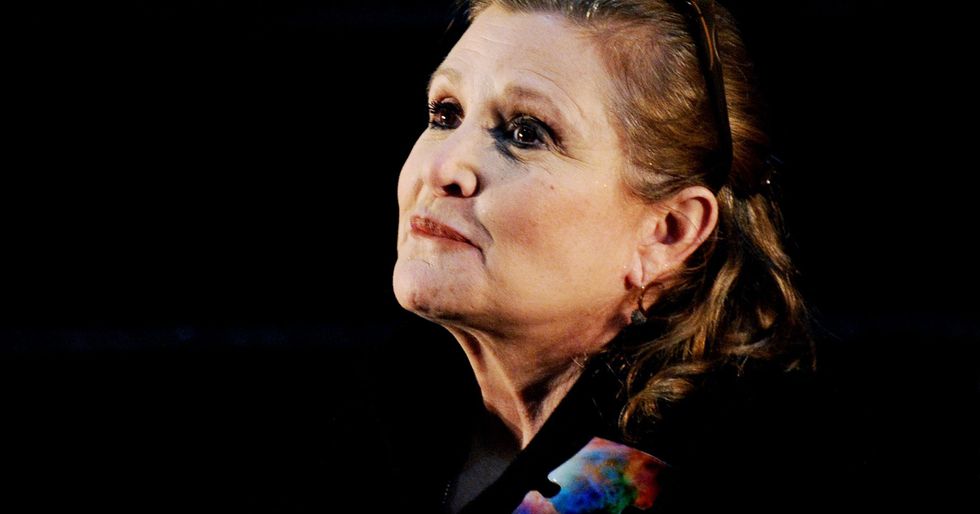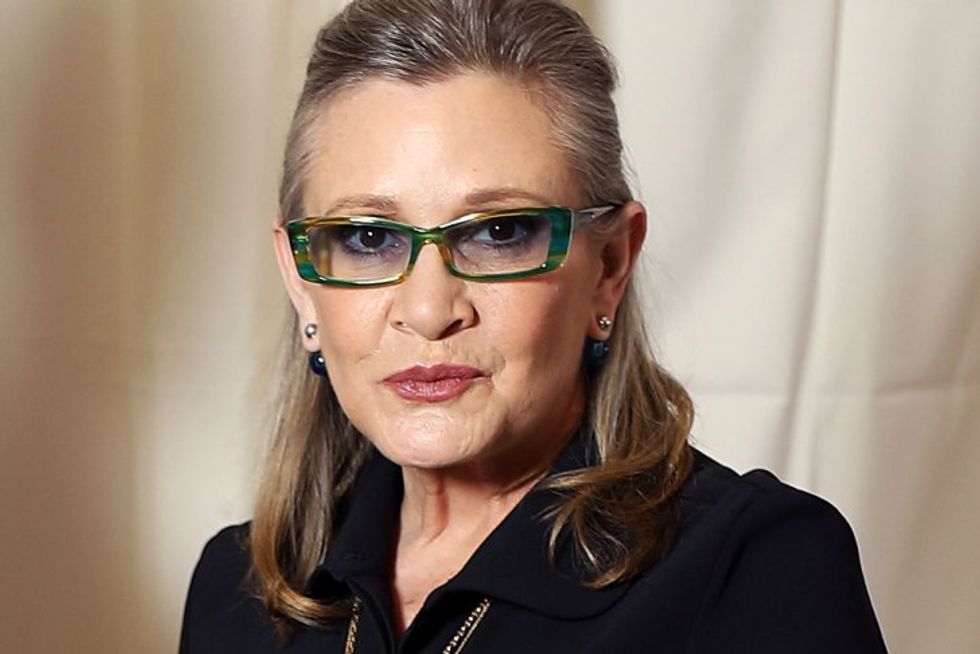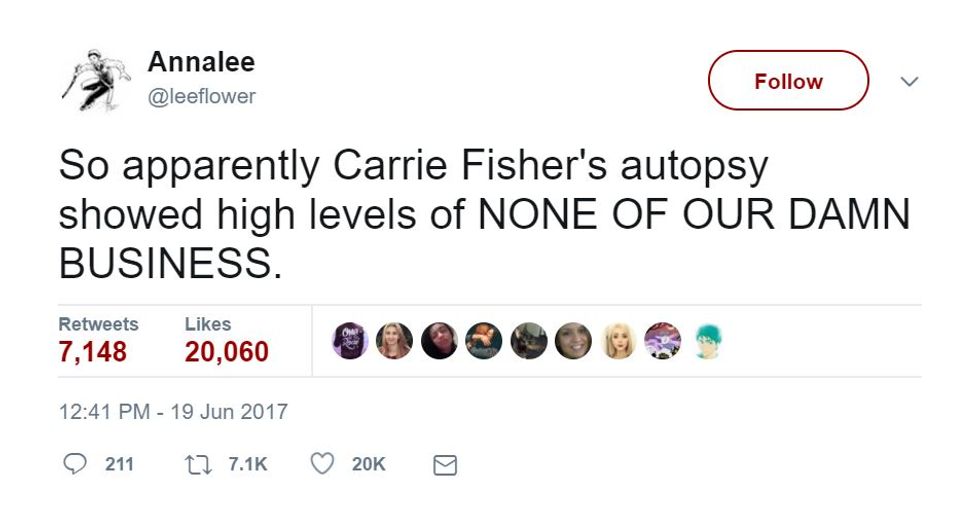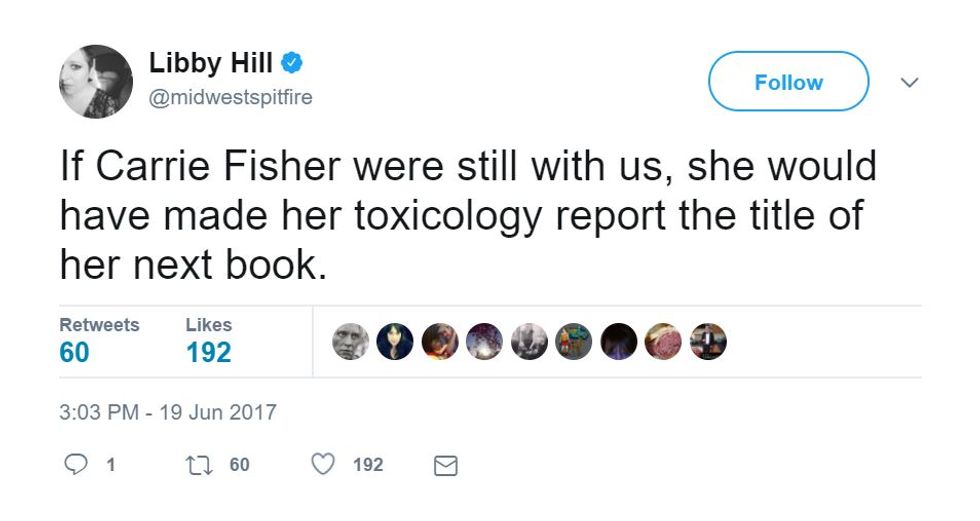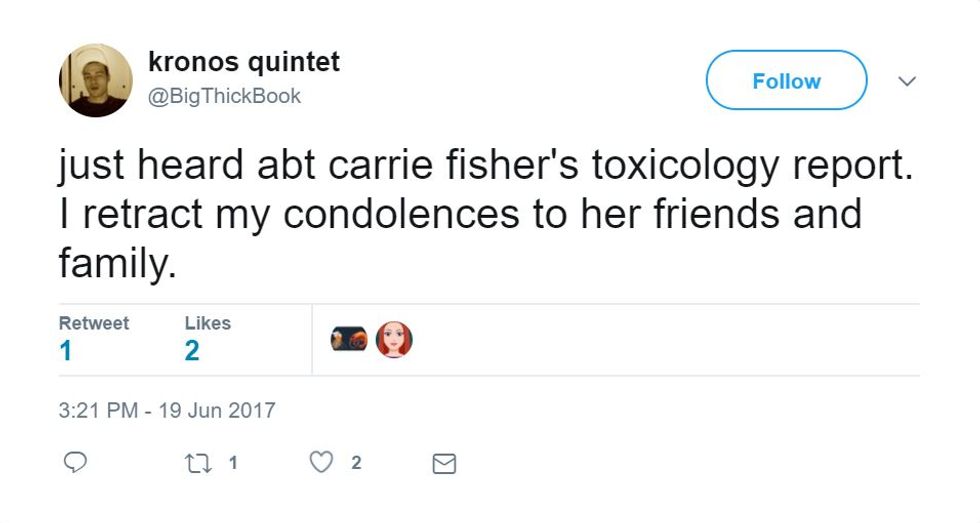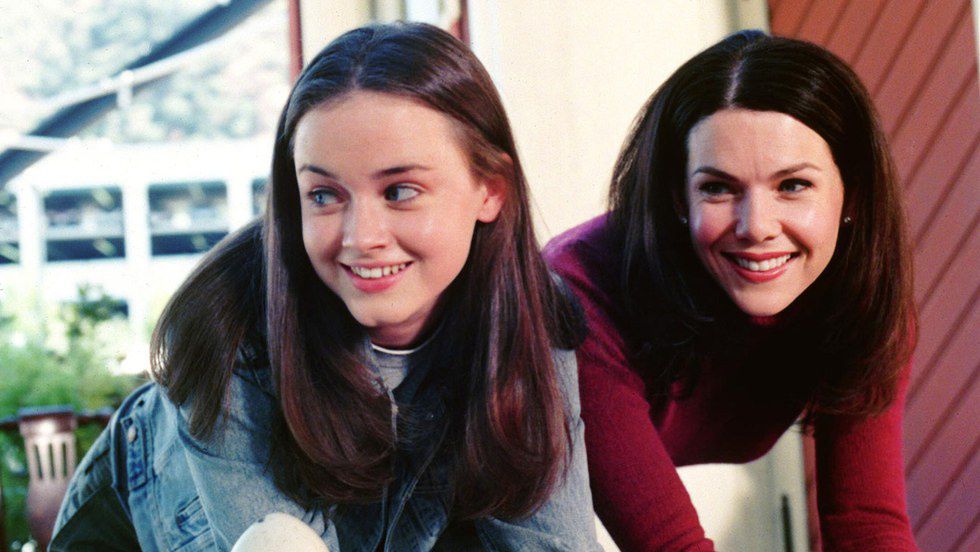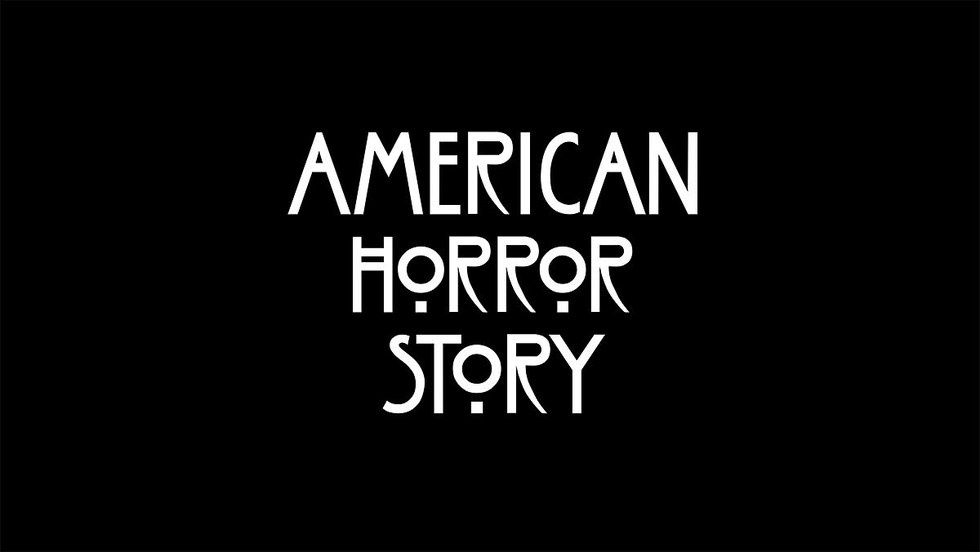“Now I think that this would make for a fantastic obit — so I tell my younger friends that no matter how I go, I want it reported that I drowned in moonlight, strangled by my own bra.” - excerpt from Fisher's 2008 book Wishful Drinking.
When actress and writer Carrie Fisher died in December of 2016, she left behind a legacy of galactic proportions. Best known for her role as Princess Leia in the Star Wars franchise, Fisher also wrote novels, such as Postcards from the Edge, and an autobiographical play, which was later turned into a book called Wishful Drinking.
However, Carrie Fisher's creative talents aren't the only thing that makes her notable. As she grew older, she began speaking out about her lifelong struggles with bipolar disorder and drug addiction. She talked about owning your diagnosis, finding the humor in life with a mental illness, and continuing to follow your dreams anyway. She also spoke on the value of getting help for your illness.
“I am mentally ill. I can say that. I am not ashamed of that. I survived that, I’m still surviving it, but bring it on. Better me than you.” - Carrie Fisher, December 2000
Recently, the results of the toxicology reports done on Fisher were released to the public, revealing a variety of drugs in her system, including cocaine, methadone, and heroin. Many fans took this news with shock and sadness - others, with anger.
But when you think about this, wouldn't this be what Carrie Fisher would have wanted? Other fans look at it like this:
The point is, Carrie Fisher dedicated her life to ending the stigma of mental illness and drug addiction. Her daughter, Billie Lourd, released a statement about the situation that nails it to a tee: "My mom battled drug addiction and mental illness her entire life. She ultimately died of it. She was purposefully open in all of her work about the social stigmas surrounding these diseases."
This is why it's important to talk about what Carrie Fisher was doing in the days leading up to her death that impacted what happened to her. Part of Fisher's entire mantra was about owning your diagnosis and getting help. Drugs can kill you, and if you're struggling with mental illness or drug addiction, it's not too late to get help for yourself.
At a rally in Indianapolis in 2001, Fisher said this: “Without medication, I would not be able to function in this world. Medication has made me a good mother, a good friend, a good daughter.” It's okay to get medication. It's okay to need help. It's okay to accept help.
What is not okay are reactions to the results of Fisher's toxicology report such as this:
Tweets such as these are the reason stigma exists, and there are far too many of them out there. Having drugs in her system does not make Carrie Fisher's death any less of a tragedy for her friends and family, nor does it make it less of a loss to the mental health community. Addiction is a powerful disease and should be treated as such.
All in all, remember Carrie Fisher's words as you go along your merry way: "You get to choose what monsters you want to slay. I'm sorry to say this again, but let's face it - the Force is with you."



